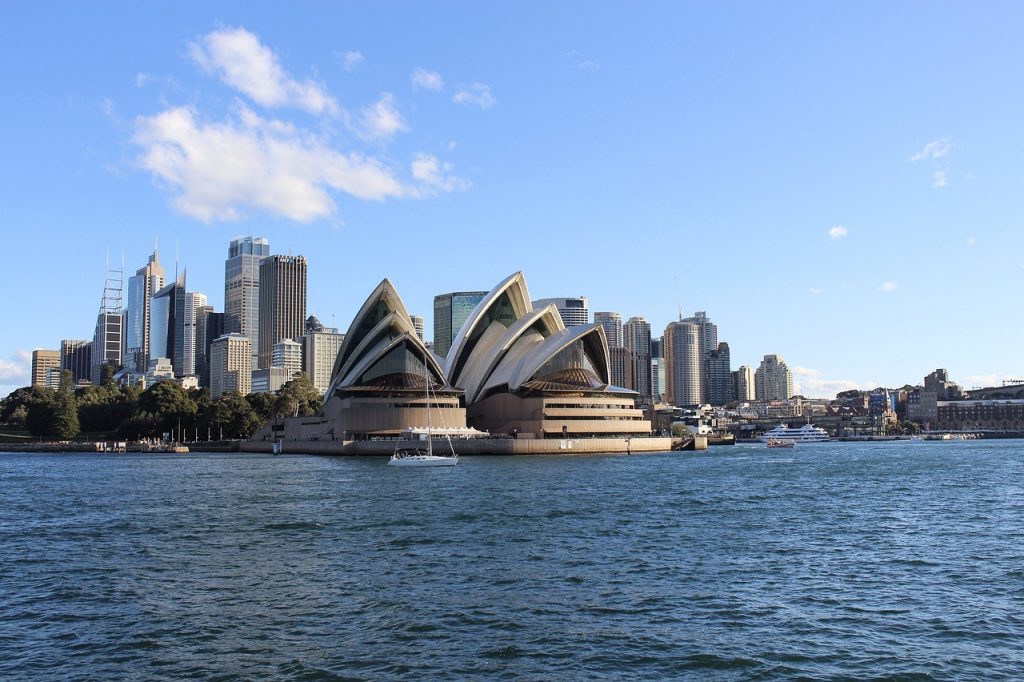All fields are required
Posted in Our Blog,Outbreaks & Recalls on March 5, 2024

University officials issued an urgent warning in response to a Legionnaires’ outbreak at Sydney University. So far there have been at least seven cases in this Legionnaires’ disease cluster resulting in three hospitalizations.
All involved in this outbreak indicate they have spent time in the Sydney Central Business District (CBD), including the Sydney University campus prior to becoming ill.
This Legionnaires’ outbreak at Sydney University comes just as students begin of semester 1 of the school year.
According to New South Wales Health, “three women and four men, ranging from their 20s to 70s, independently visited locations in the CBD between Bathurst Street, Sussex Street, Elizabeth Street, and Circular Quay in the 10 days prior to their symptoms.”
All seven patients were treated at the hospital for pneumonia in the same month.
Diagnostic tests for these seven patients identified Legionella bacteria, a likely cause of their pneumonia illness.
New South Wales Health initiated an investigation after hospitals identified the cluster of Legionnaires’ disease cases.
According to the media release, environmental health officers are “working closely with the City of Sydney Council to inspect cooling towers,” a common source of Legionnaires’ disease.
A review of cooling tower maintenance records may shed light on potential risk factors. Additional sampling can help narrow down the source of the Legionnaires’ outbreak at Sydney University.
Building owners in the Central Business District have been contacted and informed of this cluster of Legionnaires’ disease illnesses. “Building owners should ensure that their cooling towers are operated and maintained in compliance with the NSW [New South Wales] Public Health Regulation 2022.”
These regulations, among other requirements, emphasize routine monthly cooling tower tests allow for early identification and ensures prompt action (e.g. additional cleaning procedures, corrective actions, etc.)
People who have visited the Central Business District, including Sydney University, are advised in a health alert to monitor for symptoms.
Anyone who has visited the Central Business District in the last 10 days should monitor for symptoms, including: fever, chills, a cough, and shortness of breath.
As more cases are linked to the outbreak, investigators can gather more information about the potential source.
Legionnaires’ disease is a type of pneumonia illness caused by breathing in small droplets contaminated with Legionella bacteria. This type of bacteria naturally lives in freshwater environments such as rivers, streams, and lakes. The problem comes when these microorganisms find their way into man-made water systems.
In nature, instances of infection are rare.
Common symptoms include:
In some cases, patients may also experience:
Symptoms of Legionnaires’ disease often begin between 2- and 14-days following exposure. In some cases, symptoms may take longer to appear.
Unfortunately, this illness is often misdiagnosed because it presents symptoms similar to other pneumonia-like illnesses. It is often indistinguishable, even on a chest x-ray. This has a negative effect on patient recovery.
Without an accurate diagnosis, recovery may be slower and additional complications may develop. While some patients may recover without proper diagnosis, specific antibiotics can be used to treat Legionella infection more effectively. This specialized treatment ensures better odds for a successful recovery.
According to the Centers for Disease Control and Prevention, health departments reported nearly 10,000 cases of Legionnaires’ disease in the United States in 2018, though they estimate that cases are often 1.8 to 2.7 times higher than reported due to under diagnosis.
Mortality rate is high in Legionnaires’ disease. About one in ten people sickened with the illness will die.
Certain groups of people are at higher risk of becoming sick after Legionella bacteria exposure and more likely to experience more severe symptoms or complications from the illness.
Adults over 50 years old, those with either a current or even history of smoking, those with chronic lung disease such as emphysema or COPD, people with immune system disorders or take medications that affect their immune system, those with underlying illnesses such as diabetes, renal failure, or hepatic failures, and those who have traveled with an overnight stay outside of the home or at a healthcare facility.
If you find yourself sick and believe you have legionella infection, particularly after the Legionnaires’ disease outbreak at Sydney University, there are a few key steps you can take.
First, you will want to seek medical attention.
If you have symptoms associated with Legionnaires’ disease, you should seek medical attention as soon as possible. These infections can develop into fatal pneumonia illnesses and can be treated easily with a proper diagnosis.
Additionally, reporting your illness may help traceback efforts to identify the outbreak source.
You should also create a list of the places that you have been in the last two weeks.
Be as thorough as possible. Consider places you have stayed overnight or visited, even briefly. Investigators look at overlapping potential exposure sites compared with other outbreak patients.
This can help narrow down the source of the outbreak.
You may also want to contact a Legionnaires’ disease lawyer.
Legionnaires’ disease is preventable with basic and often mandated maintenance. Becoming sick or injured at the negligence of others puts a serious burden on the sickened and their family.
An experienced Legionnaires’ disease lawyer, such as those at The Lange Law Firm can help you determine if you have a case. Reach out by phone to (833) 330-3663 or click here to email for a free consultation.
If you’d like to know more about food safety in the news, like Legionnaires’ Disease Outbreak in Sydney, check out the Make Food Safe Blog. We regularly update trending topics, foodborne infections in the news, recalls, and more! Stay tuned for quality information to help keep your family safe, while The Lange Law Firm, PLLC strives to Make Food Safe!
By: Heather Van Tassell (contributing writer, non-lawyer)